Bali is not only renowned for its stunning landscapes and vibrant culture but also for its rich marine biodiversity that thrives beneath the sparkling waters. As one of the premier diving destinations in the world, Bali offers an array of diving experiences, from exhilarating Bali diving courses to serene exploration at exquisite Bali dive resorts.
With each dive, scuba enthusiasts get a glimpse of the mesmerizing underwater life that calls Bali home. However, with the increasing threats to marine ecosystems, understanding the importance of conservation efforts has never been more crucial. By participating in diving courses and gaining scuba diving certifications, divers can actively contribute to the preservation of these underwater wonders, ensuring they are safeguarded for future generations.
The Treasure Trove of Bali’s Marine Life
Bali, the Island of the Gods, is not only renowned for its lush landscapes and vibrant culture but also for its rich marine biodiversity. Beneath the azure waters lies a treasure trove of colorful coral reefs and diverse marine species, making it a prime destination for diving enthusiasts. From the shallow reefs teeming with exotic fish to the deeper, mysterious waters that house larger species, Bali’s underwater ecosystem supports a variety of life forms.
The region boasts several renowned spots such as the Liberty Wreck and Nusa Penida, attracting thousands of divers each year who seek to immerse themselves in this aquatic paradise. Engaging in Bali diving courses offers newcomers a chance to experience firsthand the beauty and importance of this unique environment while obtaining their scuba diving certification in a stunning setting. However, with increasing tourism, the pressures on Bali’s marine ecosystems are escalating. Coral bleaching, overfishing, and plastic pollution pose significant threats to the survival of these underwater wonders.
Thus, local conservation efforts are paramount to preserving Bali’s marine life for future generations. Initiatives focusing on sustainable diving practices, habitat restoration, and community involvement are essential not only for protecting these vibrant ecosystems but also for maintaining the tourism industry that relies on them. By participating in dives organized by eco-conscious Bali dive resorts and engaging in advanced diving courses that include eco-awareness training, divers contribute to a collective effort to safeguard this priceless underwater treasure.
Understanding Bali Diving Courses and Their Role
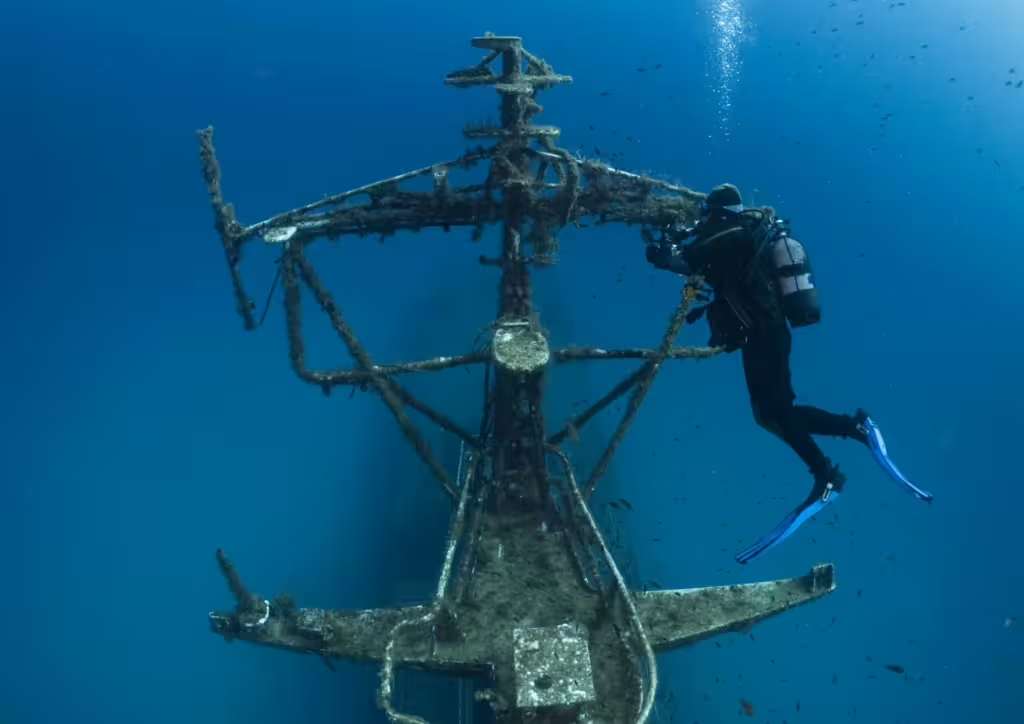
Bali is renowned for its vibrant marine biodiversity, attracting divers from around the globe. The island offers a range of Bali diving courses tailored for both beginners and advanced divers. For those new to the underwater world, an Open Water Diving Course provides essential knowledge and skills, paving the way for scuba diving certification. As divers immerse themselves in Bali’s crystal-clear waters, they encounter an array of marine life, including colorful coral reefs, majestic manta rays, and intriguing sea turtles. This breathtaking underwater experience not only fosters a deeper appreciation for marine ecosystems but also highlights the importance of protecting these fragile environments through responsible diving.
In addition to introductory courses, many Bali dive resorts offer advanced diving courses designed to enhance divers’ underwater skills while emphasizing conservation principles. These advanced lessons cover topics like deep diving and underwater navigation, all while promoting awareness about the ecological significance of preserving marine habitats. As divers learn more about Bali’s underwater world, they become ambassadors for marine conservation, encouraging others to participate in sustainable practices that safeguard future generations. The importance of these diving courses extends beyond the thrill of exploration; they play a pivotal role in fostering a collective responsibility toward Bali’s rich marine biodiversity.
Choosing the Right Bali Dive Resort for Conservation
When planning a diving adventure in Bali, selecting the right dive resort is crucial to ensure an experience that not only immerses you in breathtaking underwater views but also supports marine conservation efforts. Many Bali dive resorts prioritize sustainable practices, offering diving courses that emphasize the importance of protecting marine biodiversity.
By choosing a resort that integrates environmental education into its scuba diving certification programs, you are not just there to enjoy the thrill of diving but also to contribute to the ongoing conservation of Bali’s rich marine life. Look for resorts that participate in coral restoration projects or initiatives that minimize their ecological footprint, which will enhance your diving lesson with a deeper understanding of Bali’s underwater ecosystems.
Additionally, many resorts offer specialized courses, such as an advanced diving course focused on marine ecology, where divers are taught to recognize and respect marine species and habitats. It’s an opportunity to gain skills while learning about the delicate nature of the reefs. By opting for a dive resort that champions conservation, you align your passion for diving with responsible practices. This not only enhances your experience but ensures that future generations can also enjoy the vibrant marine biodiversity that Bali has to offer.
The Journey to Scuba Diving Certification: A Path to Awareness
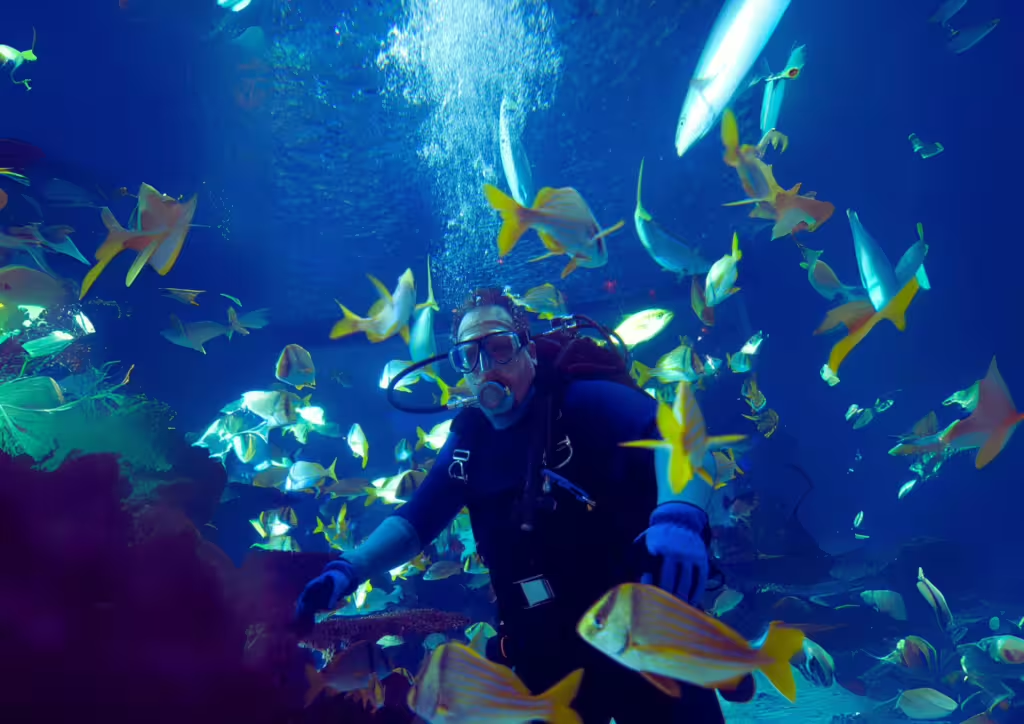
Embarking on the journey to scuba diving certification is not just about mastering the skills necessary to explore the underwater world; it’s also an opportunity to foster a deeper appreciation for marine conservation. As divers, we learn not only the technical aspects of safe diving but also the critical importance of preserving the delicate ecosystems we encounter.
Courses such as the Open Water Diving Course and Advanced Diving Course provide students with the knowledge and experience needed to recognize the diversity of marine life in Bali’s vibrant waters. Through hands-on lessons at reputable Bali dive resorts, divers become more aware of their impact on these ecosystems and develop a sense of responsibility to protect them. As one progresses through various Bali diving courses and earns their scuba diving certification, the realization sets in: every dive is an interaction with nature that requires respect and mindfulness.
The training involved in these courses often emphasizes the significance of environmental stewardship. For example, divers are taught best practices to minimize their ecological footprint while enjoying the breathtaking sights beneath the waves. By integrating awareness of marine conservation into diving education, we not only inspire a sense of duty among divers but also empower them to actively participate in preserving the enchanting underwater biodiversity that Bali has to offer.
Beginner’s Guide: What to Expect in Your Diving Course
Bali is renowned for its exceptional marine biodiversity, making it a top destination for newbies looking to embark on their diving journey. If you’re considering enrolling in a diving course, you can expect a structured curriculum that combines theory with practical lessons in the vibrant underwater ecosystems of Bali. Beginners often start with the Open Water Diving Course, which introduces essential scuba skills, safety protocols, and marine awareness, all facilitated by experienced instructors at reputable Bali dive resorts. Whether you’re aiming for your scuba diving certification or just curious about the underwater world, these courses ensure you gain confidence and knowledge before your first dive into the crystal-clear waters.
As you progress into more advanced diving courses, you will explore breathtaking dive spots abundant with coral reefs, colorful fish, and unique marine life. Each lesson is designed to enhance not only your diving skills but also your appreciation for marine conservation. Bali’s rich marine biodiversity relies on responsible diving practices, making it vital for all divers to understand their environmental impact. By engaging in these diving lessons, you not only explore stunning underwater vistas, but you also become part of the global effort to conserve these delicate ecosystems for future generations.
Elevating Skills: The Advanced Diving Course and Its Importance
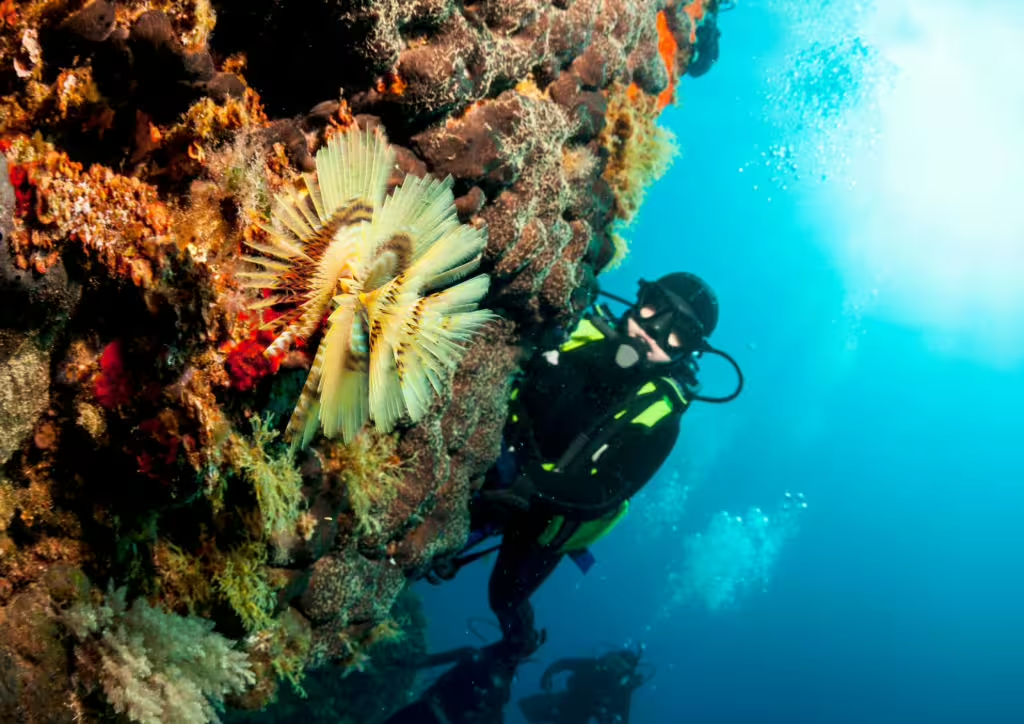
The Advanced Diving Course is a stepping stone for divers seeking to deepen their underwater experience and skills in Bali’s rich marine landscapes. This course not only enhances diver proficiency but also opens avenues for exploration of the diverse aquatic ecosystems unique to this region. Participants are trained in advanced techniques, enabling them to safely navigate challenging environments, such as wreck dives and deep-sea adventures.
By pursuing this certification, divers gain invaluable knowledge about marine life and the critical role they play in the ocean’s health, further fostering a sense of responsibility towards conservation efforts. Those who engage in advanced Bali diving courses are often better equipped to identify and address the environmental issues affecting the seas they explore. Furthermore, learning in a Bali dive resort setting, renowned for its stunning underwater visuals, provides divers with firsthand experience of marine biodiversity.
These diving lessons not only enhance technical skills but also instill a passion for marine conservation, making certified divers ambassadors for ecological sustainability. As they progress from a beginner’s open water diving course to an advanced diving course, divers become stewards for the ocean, advocating for its preservation and inspiring others to partake in responsible diving practices. Every dive taken with conservation in mind contributes to the longevity of Bali’s vibrant marine ecosystem, ensuring that future generations can also experience its wonders.
Making a Difference: How Diving Lessons Promote Conservation Efforts
Diving lessons in Bali not only introduce enthusiasts to the breathtaking underwater world, but they also play a vital role in promoting conservation efforts. Through programs offered by Bali dive resorts, participants learn about the region’s rich marine biodiversity and the critical importance of preserving these ecosystems. Scuba diving certification courses, like the Open Water Diving Course and Advanced Diving Course, incorporate educational components that emphasize sustainable diving practices.
Divers become ambassadors for the ocean, understanding how their actions can impact coral reefs, aquatic life, and overall marine health. By fostering a sense of responsibility and respect for the environment, these diving courses contribute meaningfully to conservation efforts in Bali. Moreover, the popularity of Bali diving courses results in increased awareness about the fragile state of marine ecosystems. As divers gain firsthand experience of the beauty and complexity of underwater life during their diving lessons, they are more likely to advocate for preservation initiatives.
Organizations often collaborate with dive resorts to uplift conservation messages, organize clean-up dives, and promote sustainable tourism practices. By participating in these activities, divers not only enrich their own experiences but also actively contribute to the wellbeing of Bali’s marine environment, ensuring that future generations can enjoy the same wonders that captivate them today.
The Future of Diving in Bali: Sustainable Practices and Initiatives
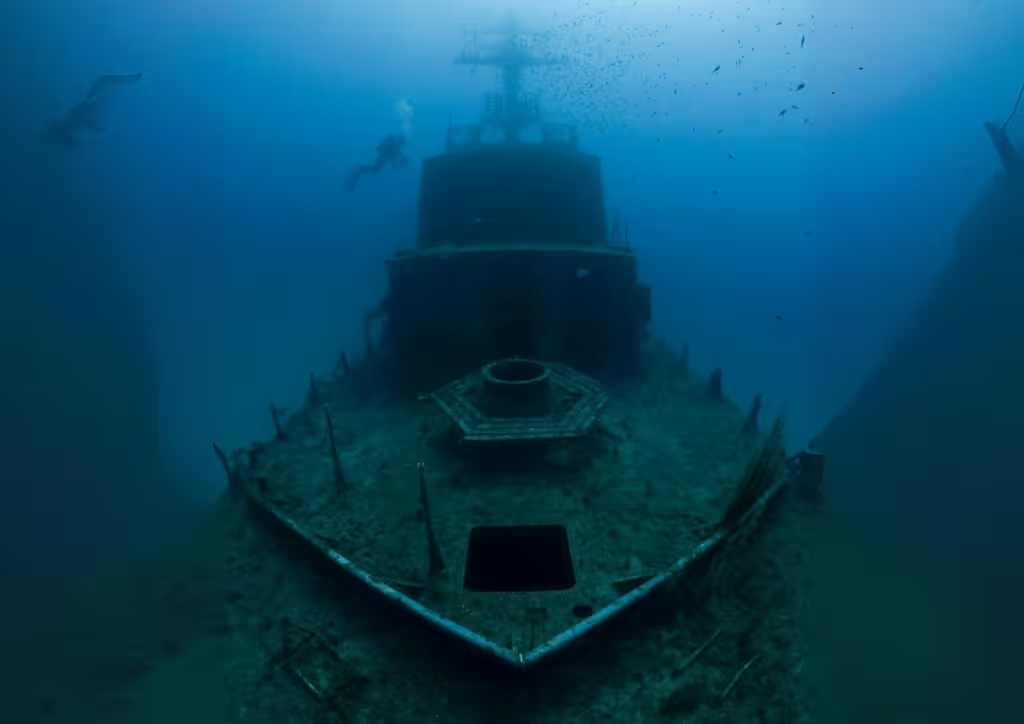
As Bali continues to be a premier destination for diving enthusiasts, sustainable practices and initiatives are becoming increasingly crucial for preserving its rich marine biodiversity. The unique underwater ecosystems surrounding Bali not only attract adventure seekers but also support the livelihoods of local communities. By prioritizing sustainable practices, including responsible diving and ocean-friendly tourism, we can ensure that these vibrant ecosystems remain intact for future generations. Bali dive resorts and diving courses are now integrating education on marine conservation into their programs, emphasizing the importance of protecting fragile marine habitats for the health of the oceans and the enjoyment of divers worldwide.
Initiatives like coral reef restoration, waste reduction at dive sites, and community engagement are being implemented to foster a culture of environmental stewardship. These efforts are complemented by specialized courses aimed at obtaining scuba diving certification with a strong focus on sustainable diving practices. As divers embark on open water diving courses or advanced diving courses, they are empowered with knowledge that enhances their experience while nurturing a commitment to marine conservation. By aligning our love for diving with sustainable practices, we can collectively safeguard the underwater wonders of Bali for future adventurers to explore and enjoy.
Protecting Bali’s Underwater Legacy for Future Generations
In conclusion, the rich marine biodiversity of Bali is not only a treasure for those who embark on diving courses but a vital ecosystem that needs our protection. By participating in Bali diving courses or seeking scuba diving certification, divers contribute to sustainable tourism, which helps fund conservation efforts. Each lesson learned in the underwater world fosters a greater appreciation for the beauty and fragility of marine life, encouraging responsible behaviors to protect this invaluable resource. Investing in Bali dive resorts that prioritize environmental sustainability is essential in preserving its extraordinary marine habitats for years to come.
As we continue to explore Bali’s underwater wonders through various diving courses, let us remember the crucial impact of our actions on marine conservation. Engaging in practices that promote preservation, such as choosing reef-friendly products and supporting local conservation initiatives, can significantly benefit these ecosystems. Together, we can create a positive impact on Bali’s marine biodiversity, ensuring that future generations enjoy the magnificence of its underwater realm. Our commitment today will shape the underwater experiences of tomorrow, making it imperative to act now for the sake of our oceans.

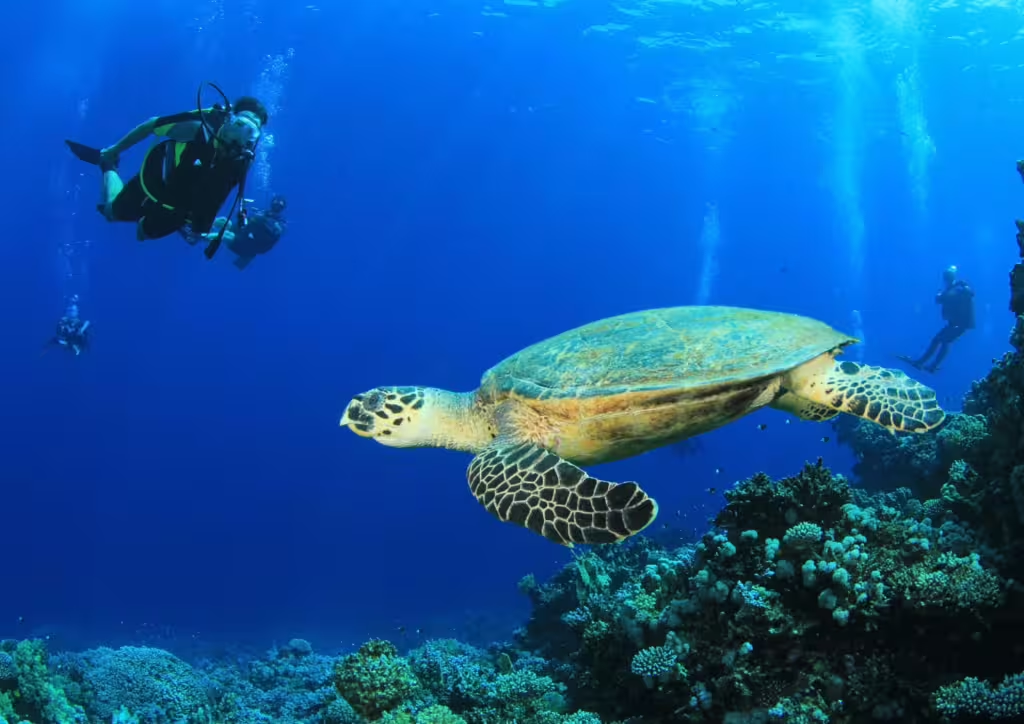
I really enjoyed reading this post! It’s great to see a blog dedicated to promoting marine conservation and sustainable diving practices in Bali. I hope more people take notice of the importance of protecting our oceans.
Thank you so much for taking the time to read and appreciate our blog post, Evelyn! We’re thrilled to hear that it resonated with you. At Pebble & Fins, we’re passionate about not only promoting sustainable diving practices in Bali but also sharing knowledge on marine conservation to inspire others to make a positive impact. It’s great to have like-minded individuals like yourself who share our values and commitment to protecting our oceans. We’d love to hear more about your experiences with scuba diving or marine conservation efforts, if you’re willing to share!
The information provided about the marine biodiversity of Bali is incredibly valuable. I appreciate how this blog highlights the impact that human actions can have on these ecosystems and encourages readers to take a more sustainable approach to diving.
Thank you for sharing your thoughts, Rafael! We’re thrilled to hear that our blog post resonated with you. At Pebble and Fins, we believe that responsible diving practices can make a significant difference in preserving Bali’s incredible marine biodiversity. We appreciate your commitment to sustainability and look forward to continuing the conversation.
This is an excellent blog post! It’s so important for us to learn about and respect the marine life in Bali. I’m looking forward to reading more posts like this one.
Thank you so much, Kathleen! We’re thrilled that you enjoyed our blog post about the importance of marine conservation in Bali. It’s a topic that’s very close to our hearts, and we believe that by sharing knowledge and best practices, we can make a positive impact on the ocean’s health. If you have any specific questions or topics you’d like us to cover in future posts, please don’t hesitate to reach out! We’re always here to learn and grow with our community.